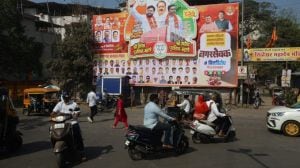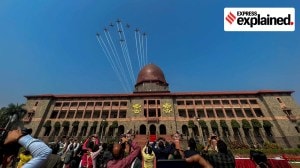Cycling ahead
Are law and order,and roads,enough to push Bihar out of the politics of grievance?
It was the stories that told the larger tragedy of Bihar: doctors who armed themselves against patients,politicians who rerouted train schedules to their whims,and district administrations run by local strongmen. For years,Bihars anarchy was seen as typical of the older order that India wanted to leave behind. Which is why the stories now coming out of Bihar currently being chronicled by a special series in this newspaper of school girls pedalling unmolested on state-gifted cycles; of shopkeepers who keep their shutters up a bit longer deserve to be taken seriously. Has Nitish Kumar lived up to his rhetoric of development? And,if so,will it pay him electoral dividends in the Bihar Assembly elections to be held later this year?
Both questions have distinct answers. Nitish Kumar came to power in November 2005 on an anti-Lalu wave,promising safety,infrastructure,and growth. In the five years since,his government has made good on at least two promises. The first is law and order,the sense that the writ of the state stands restored. And in a place where travel is measured in time not distance,the frenzy around road construction is a welcome relief. Even the grumblings on the abysmal power situation and quality of teachers indicate an electorate keen to demand a measure of governance from their representatives.
Whether any of this will help Nitish in the Assembly elections is an entirely different question. Nitish Kumars JDU swept Bihar in the 2009 Lok Sabha elections. But in the bypolls to 18 Assembly seats held soon after,the JDU lost badly,indicating that the Assembly is up for grabs. Nitish also has a canny eye for caste arithmetic. The JDUs 2005 victory is credited,in part,to its cultivation of those backward castes who had yet to benefit from OBC politics. Since then,his rhetoric has focussed on Mahadalits,those formerly-untouchable castes who are discriminated against by other Dalits. It would be a tragedy if the defining idiom of Bihari politics continues to be the zero-sum game of caste and religious assertions. But whatever the results come November,the small stories coming out of Bihar indicate the emergence of individual hope and ambition one pedal at a time.
- 01
- 02
- 03
- 04
- 05































